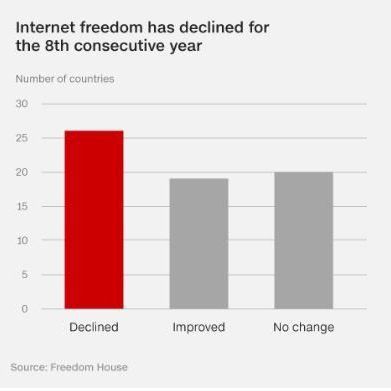
People with itching fingers to throw tantrums to the state authorities on social media will have to exercise caution.
It appears like this addiction of social media buzz has affected netizens globally.
People in authorities have persevered since the inception of social media vices ranging from online insults, spreading fake news, bullying, hacking and defying warnings.
Russia parliament has on Wednesday proposed a bill that will impose hefty fines on such culprits.
The bills – which now require only President Vladimir Putin’s signature before becoming law – received broad support in the upper house, days after thousands rallied to protest at tightening Internet restrictions.

Putin’s approval ratings have slipped in recent months to about 64 percent but he faces little threat from an opposition held back by tough protest and election laws and virtually no access to state television.
One bill proposes fining people up to 100,000 rubles ($1,525) for showing “blatant disrespect” online for the state, authorities, public, Russian flag or constitution. Repeat offenders could be jailed for up to 15 days.

The second draft law would give authorities the power to block websites if they fail to comply with requests to remove information that the state deems to be factually inaccurate.
Individuals would be fined up to 400,000 rubles ($6,100) for circulating false information online that leads to a “mass violation of public order”.

Lawmaker Andrei Klishas, from Putin’s United Russia party and one of the authors of the bills, said false reports that inflated the death toll at a fatal shopping mall fire in Siberia last year illustrated the need to tackle fake news.

“This kind of thing must be screened by the law,” he said.
Russia’s human rights council and a group of over a hundred writers, poets, journalists and rights activists called on the upper house of parliament on Tuesday to reject the law.
“What’s more, this sphere of fake news, insulting and so on, is regulated fairly harshly in many countries of the world including Europe. It is therefore of course necessary to do it in our country too,” Kremlin spokesman Dmitry Peskov said.
Tougher Internet laws introduced over the past five years require search engines to delete some search results, messaging services to share encryption keys with security services and social networks to store users’ personal data on servers within the country.